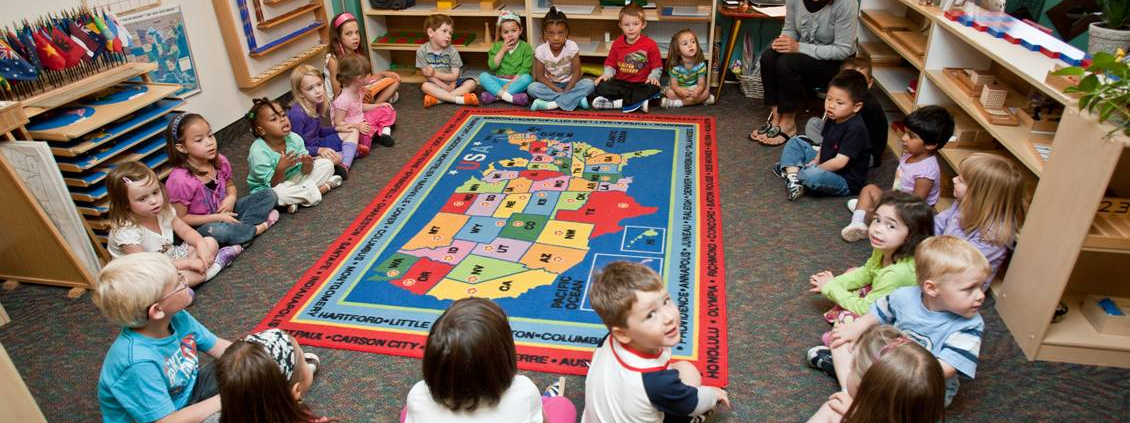As you look at different childcare options for your child, you may notice that a Montessori preschool has some key differences that set it apart from your traditional daycare. Each classroom in a Montessori preschool is unique, even though they are all part of one educational system. Some core philosophies that set a Montessori preschool apart from a traditional daycare include the following:
Time:
A Montessori preschool values time and sees every moment as an opportunity for learning and education. In a traditional daycare, the primary focus is placed on childcare. The children in a daycare center usually don’t begin to learn important concepts such as reading, writing, and mathematics, until they start Kindergarten around age 5. However, in a Montessori preschool, children begin the learning process during infancy, with the introduction of Montessori concepts including self-directed work and circle time, which foster self-control and concentration.
The Montessori philosophy also values stability over time, which is why Montessori children will stay with the same teacher for multiple years, unlike a traditional daycare where the children are exposed to a new teacher each year. The extended time period with teachers enables Montessori children to bond with their teacher on a deeper lever. Most importantly, it allows the teachers to develop and implement a long-term, individualized learning plan for each child in their classroom.
Flexibility:
While a traditional daycare classroom will focus on structure, a Montessori classroom encourages flexibility. The caretakers in a daycare classroom determine the activities that all of the children will collectively do each day and will provide a time frame in which each activity must be completed. On the other hand, a Montessori teacher will emphasize the individual needs of each child and will allow the students to work and move at their own pace. In a Montessori classroom, children are encouraged to move and learn freely by engaging in activities that interest them and collaborating with others. Each child is given the opportunity to work and learn at their own pace until they fully comprehend a topic.
Holistic Approach:
While a traditional daycare staff is concerned with entertaining children and merely introducing them to basic educational topics, Montessori teachers are devoted to developing well-educated, well-rounded, and highly successful individuals. Through the holistic approach, Montessori students are nurtured to develop social skills and positive life habits by collaborating and working on activities as a group. The holistic approach also involves peer-to-peer mentorship, as older students are given the opportunity to mentor younger students, developing traits such as cooperation, altruism, and leadership.
Freedom:
In a traditional daycare, the teaching method relies on instructor-directed discipline to function. In a Montessori preschool, children are encouraged to move about the classroom freely, exploring and engaging in a variety of activities of their choosing. This freedom allows each student to learn through hands-on interaction in a stimulating Montessori environment. By avoiding the repetitive memorization of facts and concepts enabled by traditional schooling, the Montessori philosophy inspires children to develop a true love of learning by allowing children to make their own choices.











